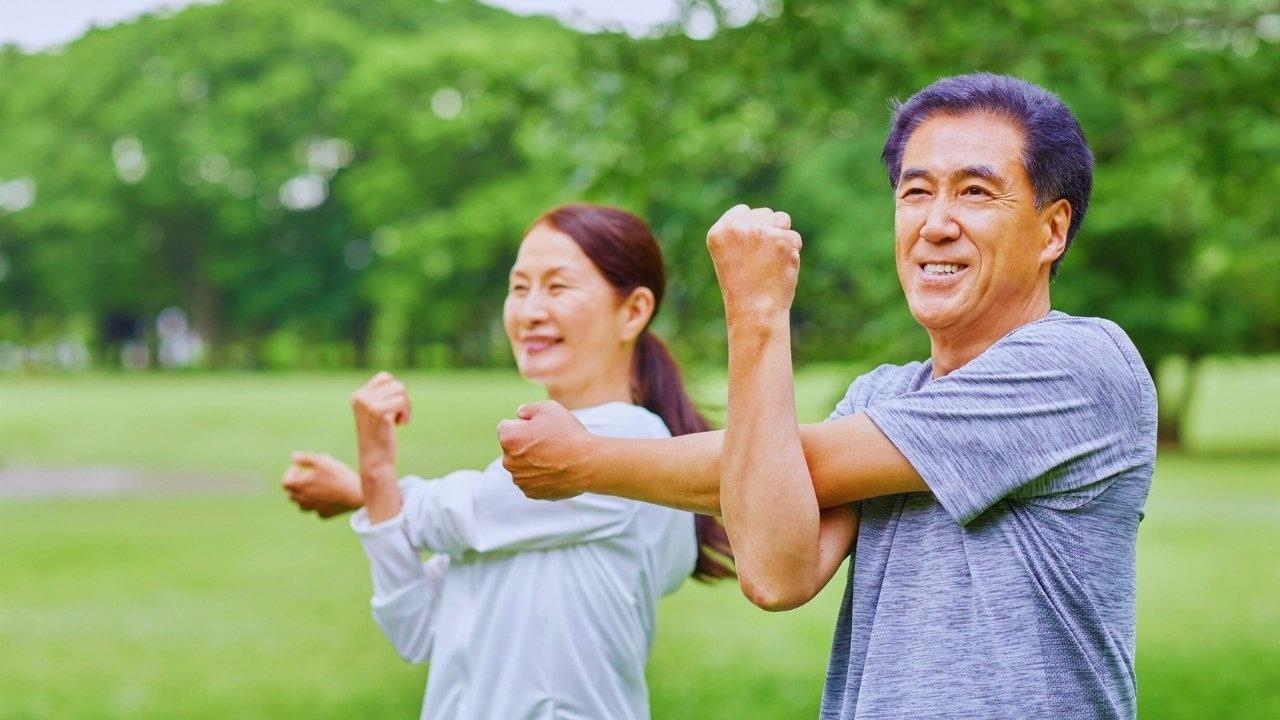You have not yet added any article to your bookmarks!

Join 10k+ people to get notified about new posts, news and tips.
Do not worry we don't spam!

Post by : Anis Farhan
Once upon a time, healing was synonymous with the great outdoors, where fresh air and movement were key components of wellness. This age-old understanding is experiencing a renaissance in 2025. Physicians and wellness experts are rekindling a simple yet profound truth: spending time outdoors promotes mental and physical health in ways that medications sometimes cannot.
This revival isn’t merely a nostalgic trend. Research now backs the effectiveness of outdoor therapy—referred to as nature therapy or green-care—which is linked to lowered anxiety, enhanced sleep quality, improved cardiovascular health, elevated mood, and sharper cognitive function. Instead of generic advice to just “relax” or “unwind,” health professionals are now prescribing structured outdoor activities—be it a stroll in a nearby park, a guided hike, forest therapy sessions, or community gardening initiatives.
In a world increasingly defined by screens and digital engagement, the pendulum is shifting back towards nature—drawing us to trees, soil, sunlight, and the sounds of wildlife.
Today's urban dwellers typically spend their days indoors, commuting in closed vehicles, and unwinding in front of screens. Consequently, natural landscapes now require intentional planning and effort to access.
This disconnect from nature has resulted in various issues—escalating stress levels, sleep problems, eye strain, and sedentary habits. Human beings developed in outdoor environments, and our biological systems still crave movement, sunlight, and genuine sensory experiences.
The effects of digital overload are significant. Constant streams of information and a culture focused on comparison leave many feeling overwhelmed. Younger generations are now experiencing chronic stress at an earlier age, and the link between mental health challenges and insufficient nature exposure has never been more evident.
Even in bustling urban settings, human connection remains elusive. Nature, particularly in group settings, has emerged as a remedy for loneliness, leading to the formation of hiking clubs, nature retreats, meditation groups, and community gardens.
Outdoor therapy transcends mere outdoor time; it is structured, intentional, and frequently guided. It encompasses:
Mindful nature walks and hikes
Forest bathing (immersive nature experiences)
Structured park-prescription initiatives
Water-centered therapy (rivers, lakes, beaches)
Outdoor yoga and meditation sessions
Gardening as a therapeutic practice
Adventure therapy (mountain trails, camping)
Wildlife observation excursions
Cultural heritage nature trails
The underlying philosophy is clear: when nature nurtures the nervous system, the body rejuvenates.
Research has shown that being in nature can decrease cortisol levels—the hormone associated with chronic stress. Even brief exposures of 10 to 20 minutes outside can trigger noticeable relaxation.
Nature engages the parasympathetic nervous system—the body’s natural relaxation system—resulting in lowered heart rates and blood pressure. Environments filled with greenery promote the release of serotonin and dopamine for natural mood enhancement.
Natural oils released by trees, known as phytoncides, can boost the immune system. Regular outdoor exposure has been shown to increase the production of natural killer cells, integral to combating infections.
Time spent in natural settings reduces mental fatigue, leading to improvements in attention span, creativity, and cognitive performance, especially for children and professionals suffering from burnout.
Sunlight exposure helps regulate circadian rhythms, while outdoor activities reduce stress and help manage overthinking, leading to better sleep without the need for sedatives.
General practitioners are now integrating nature prescriptions into wellness strategies for treating:
Stress and anxiety
Minor depressive disorders
Sleep irregularities
Chronic pain management
High blood pressure
Focus and ADHD issues
Nature does not replace medical treatments; it bolsters the foundation of healing.
Organizations, particularly within technology sectors, are initiating outdoor breaks, workdays in nature, team hikes, and nature-themed retreats to mitigate burnout and enhance creativity.
Schools are re-introducing outdoor play, nature-centered learning, student clubs focused on nature, and ecological engagement weeks. Research shows that time spent outdoors enhances attention, behavior, and emotional stability.
Cities are creating parks, green pathways, cycling lanes, waterfront walking spaces, and rooftop gardens. Officials are recognizing that vibrant cities must be green, breathable, and walkable to foster health.
Originating from Japan’s concept of “shinrin-yoku,” forest bathing has gained international interest. Guided excursions encourage participants to slow their pace, breathe deeply, and reconnect with their senses.
While social media has been criticized for creating disconnect, it also hosts vibrant communities dedicated to local nature exploration, eco-tourism, bird-watching, and outdoor journaling. Many people are now rediscovering local parks and quiet trails thanks to shared experiences online.
With an increasing preference for slow travel, eco-tours, camping, and wellness retreats, there’s a shift from rapid sightseeing to deeply immersive experiences in nature.
Outdoor therapy is accessible even in urban environments; simple access to greenery can be healing:
A leisurely walk in a local park
Reading in the shade of a tree
Morning sunlight exposure on a balcony
Practicing yoga outdoors
Caring for potted herbs and plants
Organizing family outdoor evenings
Mini-walks on weekdays and nature excursions on weekends
The benefits of green time are not limited by distance—they depend on intention.
Outdoor play used to define childhood; however, today's youth often know more about digital landscapes than natural settings. Engaging with nature enhances:
Motor skills and balance
Social emotional growth
Creativity and inquisitiveness
Focus and academic performance
Stress management abilities
Immune function
Recognizing these benefits, parents and educators are reviving opportunities for nature involvement through play parks, farm trips, and outdoor sports.
Facing academic and career pressures, digital comparisons, and social expectations, many young adults are turning to outdoor therapy as a grounding force in their lives. Recreational activities like hiking, biking, sunrise yoga, and lake walks have become lifestyle essentials linked to emotional well-being.
Nature serves as a reprieve from a world obsessed with perfectionism and self-assessment. Stepping outside offers clear simplicity: breathe, move, feel the sun, hear the birds, and see the sky—restoring essential humanity.
10-minute sunlight exposure
Stretching on the balcony with tea
Evening relaxation in a park
Walking to local shops rather than driving
Weekend hikes
Family picnics in parks
Riverside strolls
Gardening or planting
Exploring trails or hill stations
Camping in nature
Beach getaways
Morning bird-watching
Nature doesn’t require intensity; it simply calls for consistency.
Nature therapy is not just a passing trend. It is reshaping the fields of wellness, medicine, tourism, and lifestyle. In the coming years, anticipate:
Incorporation of nature prescriptions in healthcare
Designated forest therapy spaces in urban settings
Corporate wellness budgets for outdoor initiatives
University-led nature-based mindfulness programs
Public movements promoting “green hours”
Cultures focusing on tech-detox vacations
Well-being transcends mere digital tracking and gym memberships; it is a rhythm of life deeply rooted in nature.
After years of racing towards convenience and technology, society is awakening to a vital truth: humans need the earth, the sun, the wind, and the wide open sky.
Outdoor therapy is not merely an escape from modernity; it is a remedy for the imbalance created by it. In nature, we don’t strive for tranquility; instead, we experience it. The body adjusts, the mind relaxes, focus is regained, and stress fades without effort.
This new wellness revolution isn’t futuristic—it is primal, rooted in where wellness has always resided.
This article reflects general views on outdoor therapy. It should not be utilized as a substitute for professional medical advice. Individuals experiencing medical or psychological conditions should seek guidance from their healthcare providers before making any adjustments to treatment plans.










Landfill Collapse in Cebu Kills Four, Dozens Missing as Rescue Continues
A massive landfill collapse in Cebu City has left four dead and dozens missing as rescuers race agai

Netanyahu Says Israel Aims to End US Military Aid Within 10 Years
Israeli PM Benjamin Netanyahu says Israel plans to gradually stop relying on US military aid within

Dhurandhar’s Box Office Roars On: Ranveer Singh’s Spy Thriller Shatters Records
Ranveer Singh’s Dhurandhar earns ₹3.6 Cr on Day 36, totaling ₹844.45 Cr in India. The spy thriller s

FCC Clears SpaceX to Launch 7,500 More Starlink Satellites Worldwide
SpaceX gets FCC approval to add 7,500 new Starlink satellites and upgrade frequencies, boosting glob

Indonesia Blocks Elon Musk’s Grok AI Over Unsafe AI Content
Indonesia temporarily blocks Elon Musk’s Grok chatbot due to unsafe AI-generated images. The move ai

PV Sindhu’s Malaysia Open Run Ends with Semifinal Loss to Wang Zhiyi
PV Sindhu’s comeback at Malaysia Open ends in semifinals as China’s Wang Zhiyi wins 21-16, 21-15. Si